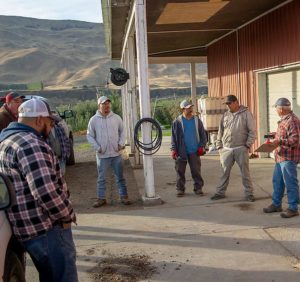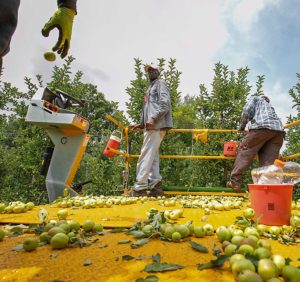On Jan. 28, New York’s Farm Laborers Wage Board decided to lower the state overtime threshold for farmworkers from 60 hours per week to 40 hours per week — but not until 2032.
If approved, the new wage rate will be phased in over a 10-year period, with reductions of four hours a week occurring every two years. The reductions will begin Jan. 1, 2024, when the overtime threshold will lower to 56 hours per week. The next reduction, to 52 hours, will occur in 2026, and so on until it reaches 40 hours in 2032.
According to New York Farm Bureau, the wage board’s resolution is only a recommendation. The New York State Department of Labor must submit a report for public comment, with the final decision up to Gov. Kathy Hochul.
In a news release, NYFB stated that its agricultural partners in the Grow NY Farms coalition will continue fighting to keep the overtime threshold at 60 hours per week.
“Changing the overtime threshold to 40 hours a week for farmworkers in New York means that these workers will be limited to 40 hours, due to simple farm economics,” according to a Grow NY Farms statement. “We have already seen farmworkers leave the state for more hours of work and production shift to less labor-intensive crops since the farm labor legislation was enacted in January 2020.”
In 2020, the New York state government removed the overtime exemption for agriculture and mandated that all farm laborers be paid 1.5 times the normal rate for any work they perform in excess of 60 hours per week and for any work they perform on a designated weekly day of rest.
Last year, New York fruit growers told Good Fruit Grower magazine the 60-hour-per-week overtime threshold was challenging, but if the threshold was ever lowered to 40 hours, they might consider getting out of fruit altogether.
According to a 2017 Cornell Cooperative Extension study projecting labor cost increases for apple farms, a 40-hour overtime threshold could cost apple growers an additional 18.7 percent. An economic impact report published by Farm Credit East, an agricultural lending cooperative, stated that lowering the threshold to 40 hours would drive up New York farm labor expenses by 17 percent.
—by Matt Milkovich








Leave A Comment